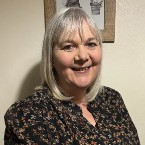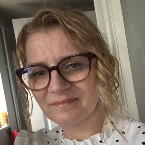The charity life for a child now provide insulin to one hospital in Makeni. The nurses were not familiar with insulin or carbohydrate counting. A team of healthcare professionals including myself went to Sierra Leone to educate the local team. One of the major inputs we had was explaining that people with T1D can have carbohydrates as long as they match the insulin. We saw many patients where this was not the case and they had severely stunted growth because of this.
We were shocked at the healthcare provisions in the hospital. There is no way to measure basic blood levels such as ketones, hba1c, not to mention more complex bloods like antibodies to confirm diagnosis. The diabetes centre had no access to running water to wash hands they only had alcohol gel and we had some wet-wipes. Many of the patients who attended had severe foot wounds, our podiatrist was very busy prescribing antibiotics and cleaning up wounds. Luckily, she bought all the equipment she required from the UK as the onsite team had nothing usable.
We did education sessions with the whole hospital over five mornings covering topics such as insulin safety, nutrition and footcare. We also visited the local churches and small villages to raise awareness of the signs and symptoms of diabetes. We did a screening session in which we had 84 people attend and found five cases of newly diagnosed Type 2 diabetes. We were able to give lifestyle advice to three of those patients, but two had glucose levels above 20mmols/L so we had to start medication. Medication is not free in the country, neither is seeing a healthcare professional. Many people will not see a healthcare professional such as a nurse due to costs and see a traditional healer who may give incorrect treatment such as herbs which have been known to have harmful consequences.
We raised over £3000 during our visit, this amount of money will fund a diabetes nurse in Sierra Leone for 2 years. We have set up a system whereby we can educate and mentor them from the UK via virtual meetings. We are planning further visits next year funding permitted. This visit was kindly funded by the Transpetrol Foundation via the charity Help Madina.
The whole experience was moving and rewarding, and we look to visit next year to continue the work in improving diabetes care across Sierra Leone. I hope this experience has highlighted the incredible work of charities supporting patients, and how we need to support all those with diabetes with our knowledge and expertise to improve standards of care.






 Share on LinkedIn
Share on LinkedIn




